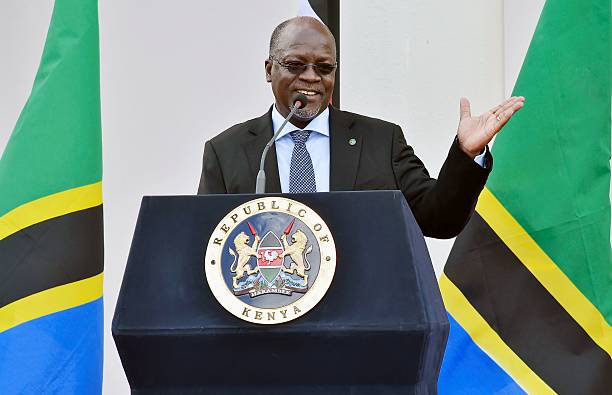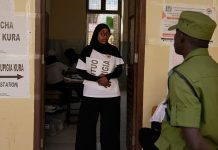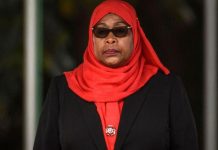
AfricaPress-Tanzania: BUILDING financial independence, audacious strategic projects execution and overall improvement of social services have been the hallmark of the fifth phase government national budgets.
The previous four national budgets have principally been crafted in accordance with the fifth-phase government’s commitments to fulfill Tanzanians’ wishes and expectations as reflected under the ruling party, CCM Election Manifesto of 2015-2020, Five Years Development Plan (2016-2021), and the National Development Vision 2015.
In his inaugural speech to officiate the 11th Parliament on November 20, 2015, the fifth-phase President, Dr John Magufuli laid down the economic priorities of his government.
He said his government’s focus would be sustaining and strengthening economic principles built by his predecessors with key priorities on accelerating economic growth to reach middle income status, increase revenues, curb leakages of government resources, control expenditure and enforce public procurement legislations.
The new government’s other priority areas were improving economic infrastructure such as roads, railways, air and marine transportation and energy with the objective of attracting investors from within and outside the country.
It also envisaged building an industrial economy, with a key target on industries which create jobs, utilise domestically produced raw materials, and produce goods which will be consumed by the majority of the people in the country.
Moreover, the government pledged to improve the quality of education, health services, water and energy and fight rampant corruption, embezzlement and drug abuse.
From the onset, Dr Magufuli vowed to undertake major reforms in government operations with a view to minimise bureaucracy.
The 2016/17 Budget, the first ever budget Dr Magufuli’s government with the theme Industrial Growth for Job Creation”, was presented by Finance and Planning Minister, Dr Philip Mpango, in which the government projected to raise 29.54 trillion to finance recurrent and development expenditures.
Out of this, 11.82 tri/-, equivalent to 40 percent of the total budget was set aside for recurrent development expenditure, whereas 8.70 tri/-was due to be raised domestically and 3.12 tri/- externally sourced.
The budget had two main economic objectives. First was to implement aspirations of the fifth phase government in resolving challenges facing citizens, with the State insisting on bringing new hope for better life to the wananchi, especially among low income earners.
In order to achieve that objective, major reforms in Government’s undertakings were introduced, notably restoring discipline and accountability and to get rid of the culture of doing business as usual, as well as strengthening integrity and management of public expenditure and national resources.
Secondly, the budget set the tone for much-envisaged transformation of the economy into real middle income status through sustaining macro-economic stability and developing industries that would foster job creation particularly for the youths, and enhancing agricultural productivity in order to increase income for the majority who depend on this sector.
The Government budget for 2016/17, on the other hand, aimed at improving the basic infrastructure for the provision of water, power and transportation for industrial development, as well as raising production of agricultural produce which are used as industrial raw materials.
In order to achieve this, the emphasis was on improvement of domestic revenue collection and allocation of resources to key areas that attract industrial investment.
For increased domestic revenues, the government put more emphasis in the use of EFDs, a move sought to ensure that every businessman issued receipts generated by EFDs and citizens were urged to demand such receipts whenever they purchased goods or services.
The government assumed more control on tax exemptions granted to businessmen, public servants, religious institutions and non-governmental organisations, which were now required to pay tax in advance on goods they ordered, with beneficiaries refunded after making inspection and satisfied that the said goods have been used on intended purpose.
All Accounting Officers were directed to use electronic systems and devices to collect revenue in Central Government, Local Government Authorities, public institutions and corporations in order to increase efficiency and control revenue leakage.
The government also directed that taxes and levies collected should be deposited to banks within 24 hours, while all government institutions that were operating under retention scheme were instructed to submit all revenues collected to the Consolidated Fund.
Accounting Officers were instructed to abide to the Government instruction on cutting unnecessary expenditures in the areas specified which include: Overseas travels, foreign training, sitting allowances, seminars and workshops, celebrations and national festivals, procurement of furniture, procurement and maintenance of vehicles, in order to get more funds and direct it to the development projects aimed at solving citizens’ problems.
Consistent with 2017/18 macroeconomic targets and fiscal policy objectives, the fifth-phase government unveiled a 31.7tri/ budget, with domestic revenue, including LGAs own sources, estimated at 19.97tri/-, which was 63 percent of the total resource envelope.
The government allocated 12tri/-, an equivalent to 38 per cent of the total budget for development expenditure. The amount was within the range of 30 to 40 percent of the total budget as stipulated in the Five Year Development Plan 2016-2021.
Moving the budget, Finance and Planning Minister, Dr Mpango noted that it was built on government’s sincere intention of fast tracking realisation of the aspirations of the National Development Vision 2025 through implementation of the CCM 2015-2020 Election Manifesto; Five Year Development Plan 2016/17-2020/21; and Long Term Perspective Plan (LTPP); and the Global Sustainable Development Goals (SDGs) 2030.
The budget set a 2017/18 Annual Development Plan as part of the implementation of the National Five Year Development Plan 2016/17–2020/21, with the Plan earmarking priority areas as interventions for fostering economic growth and industrialisation; Interventions for fostering human development; Interventions to create a conducive environment for enterprises and businesses to thrive; and interventions to strengthen implementation effectiveness.
The Plan emphasized on successful implementation of flagship projects, which include construction of new standard gauge railway line and revamping the national air carrier; Mining of coal and iron ore and construction of iron and steel complex in Mchuchuma and Liganga –Njombe, among others.
The Government continued to implement various policy and administrative measures in order to strengthen and simplify revenue collection. The measures among others included: Strengthening revenue collection systems by applying electronic systems so as to curb revenue leakages. All ministries, government departments and institutions were directed to start using the “Government Electronic Payment Gateway System”.
During the 2017/18 financial year, a new system of revenue collection (Electronic Revenue Collection System (e-RCS)) was introduced to ensure proper assessment of taxes and provide assurance to the taxpayers on the amount of taxes they are supposed to pay.
Identification of informal small businesses and those operating in informal places for example food vendors, small second hand clothes sellers, small agricultural products (vegetables, banana and fruits) sellers, by issuing them identity cards, was another huge decision taken during the fifth-phase government’s second financial year.






